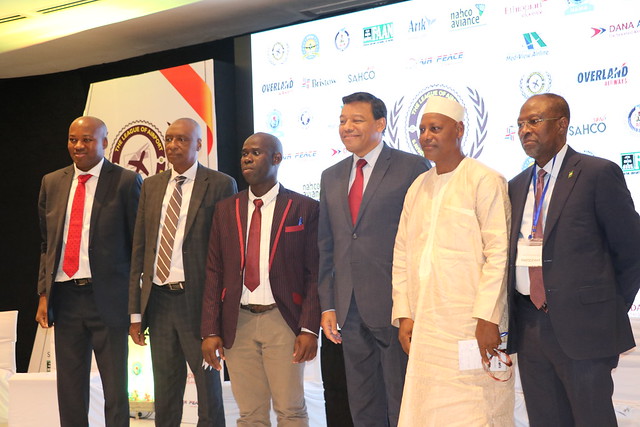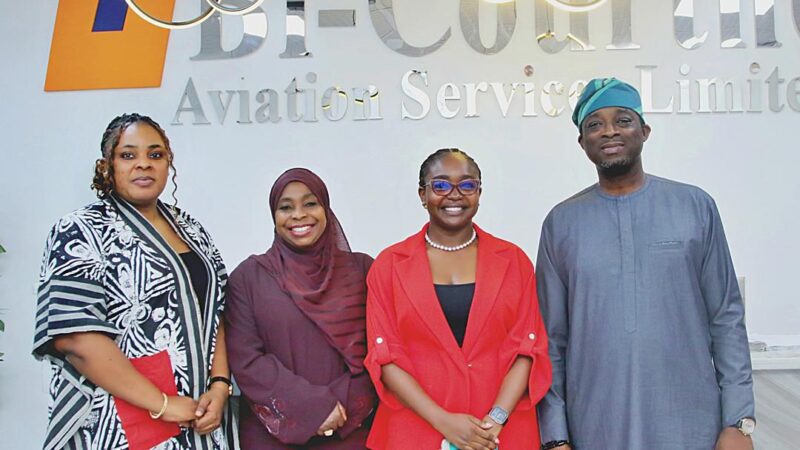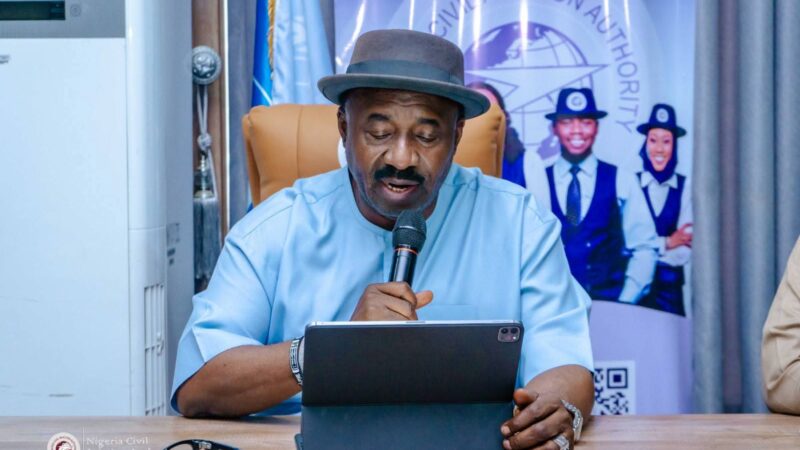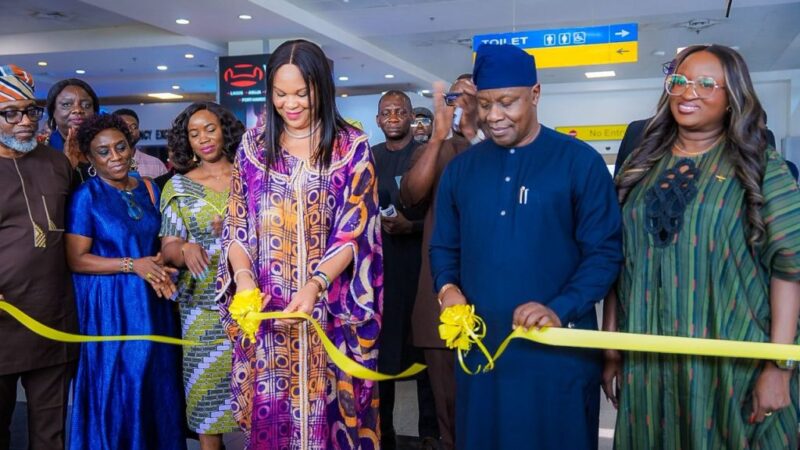Stakeholders set agenda for policymakers on aviation


Nigeria’s local carriers struggle to leverage on the industry’s huge potential – market size, while the government has thrown the doors open for foreign airlines to feast on the market, no thanks to poor policy implementation.
This and other imbalances hampering the growth of the indigenous airlines were lucidly discussed at the 23rd Conference of the League of Airport and Aviation Correspondents held in Lagos recently.
The focal points garnered from all the discourses at the event were meant to give direction to the incoming Aviation Minister, who would take saddle of proceedings for policy formulation and implementation, with a view to repositioning the industry – make it investment friendly, build infrastructure and correct the imbalances for local airlines to thrive competitively against their foreign counterparts.
The theme of the conference: ‘Boosting Aviation Investments through Policy,’ captured the real picture of an industry that suffers negligence, a situation that begs for quick attention from the government.
A communiqué compiled by the organisers raised critical areas that must be addressed.
Concerns
Chairman of LAAC, Mr. Olusegun Koiki, in his welcome address, noted that the Nigerian Aviation Industry has suffered and was still suffering from government policies and their summersaults which have kept the airlines in the struggle to remain in business.
He, therefore, said that there is a need for policy measures that can address anti-investment situations in the industry while attracting both local and Foreign Direct Investments (FDIs).
The Chairman of the occasion, Alhaji Muneer Bankole, in his speech, noted that the Aviation Industry was indispensable to the socio-economic development of any country and that Nigeria is not an exception, regretting the liquidation of the Nigeria Airways.
He said Nigerian local airlines are not yet able to measure up to the expectation of maximising the country’s potential despite over 200 million population to our advantage which other foreign airlines are feasting on.
He said that the industry started nose-diving from the late 80s through politicisation, overbearing governmental intervention and policy inconsistency, hence gestation period of domestic airlines falls within the average of five to 10 years due to scarcity and high cost of aviation fuel, poor facility at our airports, obsolete infrastructure, multiple taxations, shortage of forex for airline operators, multiple designation for the foreign carriers and absence of Maintenance Repair and Overhaul (MRO) facility.
Policy direction
Setting the tone for discussion, former Director-General of the Nigerian Civil Authority, Dr. Harold Demuren, presenting his paper; ‘Boosting Aviation Investment Though Policy: Government Perspective,’ said Nigeria needs stable legal and regulatory frameworks to grow the industry.
He regretted that Nigerian aviation has never been bereft of policies but they somersaulted with new ministers in place.
He said the government must implement key performance indexes among the civil servants.
Presenting the second paper; ‘Boosting Aviation Investment Through Policy: Airlines Perspective,’ CEO, Top Brass Aviation, Capt. Roland Iyayi, said we have a fragmented market that has led to disruptive competition.
He said the Nigerian Civil Aviation Authority (NCAA), should have both Safety and Development of the industry in their purview but that they only focus consistently on safety to the extent that the airline industry is overregulated.
On aeropolitics, Yayi said the government is the custodian of the bilateral agreements and the multilateral agreements. Those agreements are not just pieces of papers, they are negotiations. So the government should ensure that those negotiations are strictly adhered to, and stop allowing too much liberty to the foreign counterparts to frustrate local carriers.
“Until you give a Nigerian carrier Heathrow airport then we are not talking. That should be the stance of the government and it should be the same thing in every market. That is what you call aeropolitics. But the airlines can’t play it. It is the government that can play it.”
On multiple designations, Yayi advised the government to re-invest what it earns from multilateral arrangements with some foreign airlines (Ethiopian, for example) into the sector to allow for growth and also pave way for the local carriers to flourish.
“Let me say this, Ethiopian airlines and indeed every other international carrier flying into multiple designations in Nigeria are carrying that out under what you call a commercial agreement. What that means is that the airline besides the designated airport in Nigeria which typically is Lagos will now go back to the ministry and say we want to be able to operate into Abuja, Port Harcourt or Kaduna and they will say to the ministry that for every passenger we carry on any and every of these routes we will pay you $20. Now by virtue of that agreement, the ministry looks at it and says, “Well, we will have a potential of say maybe a million passengers from this operation in a year, that is 20 million dollars and they sign the commercial agreement to the detriment of the domestic operator. So, you are getting 20 million dollars from an international operator, but do you put that back into the system to grow the domestic operator or you are taking that away from the industry and you have allowed the domestic operator to just wallow and die? So, the issues are very much of commercial interest of the government, if the government would look at the benefits that an airline provides to its local economy particularly over and above the contribution by way of a merger 20 million dollars for instance annually from an international airline, then it will do the needful. Aviation has what we call the footprint, it is not necessarily the number of passengers you carry, it is the enabler of the economy. You have tourism, agriculture, oil and gas, all that rely on market access and the only way you can have market access is aviation. That is the cheapest and easiest way, so for as long as we do not look at this as a fundamental issue to address, then we have a problem.”
The Chief executive Officer, African Aviation Services, Mr. Nick Fadugba, on ‘Vision 2030 for Nigerian Aviation’ said that aviation can be a vital catalyst for Africa’s economic growth and social advancement.
He said Africa needs a safe, reliable, efficient and portable air transport industry that facilitates business, trade, and tourism across the continent and between Africa and the world.
Fadugba, identifying the challenges, said aviation safety, security, training, regulatory oversight, infrastructure, liberalisation, modernisation, funding, efficiency, affordability, and profitability all need to be improved significantly.
He said a situation in which over 90 per cent of international air traffic to and from Nigeria is carried by non-Nigerian airlines is damaging to the economy in several ways, such as the huge capital flight from Nigeria, the continued deterioration of the Nigerian aviation industry and the loss of skilled aviation employment opportunities.
He supported the federal government’s plan to launch a new national carrier with minority government shareholding if it is one transparently and skilfully established.
To succeed, he said the new national carrier needs a sound business plan, strategic industry partners, adequate funding, an experienced management team, well-trained staff, a fleet of modern aircraft, a comprehensive route network, on-time performance, good customer service, and no government involvement.
He recommended that African governments and regulators need to provide an enabling environment, while African airlines should work together through inter-lining, codesharing, joint ventures and mergers and acquisitions so as to form stronger carriers that can compete effectively and can grow and prosper.
The Chairman, Air Peace, Barr. Allen Onyema frowned at the belief that Nigerian airlines are not strong and condemned multiple designation and multiple entries.
He said Nigeria must begin to have deliberate policies to protect Nigerian investment, stressing that no foreign airline is doing Nigeria well but use some people in government to run domestic airlines out.
Suggested roadmap
The President of NANTA, Mr. Benard Bankole said the Federal Ministry of Transportation through the minister of Aviation and other relevant regulatory agencies need to reflect on the National Aviation Policy in conjunction with various stakeholders holistically.
He said BASA agreements with other major European and some Asian countries need to be urgently reviewed to reflect the interest of local carriers.
He also called for appropriate policy statement regulating double taxation need to be quickly looked into in conjunction with the exorbitant cut-throat charges levied against Nigeria carriers to our various West African routes, particularly francophone states.
As for Rowland Yayi, the NCAA needs to make airlines survive by coming up with policies that are consistent, deliberate and focused addressing issues holistically.
The government needs to be supportive and get the right people in place, while the airports should be licensed on three-tier levels to avoid “unviability” of airports.
Resolutions by the Panel of Discussants
The government should urgently review BASA agreements.
Foreign and local airlines should be encouraged to partner with the government’s assistance because it is absolutely impossible for any Nigerian airline to succeed without partnering with an international carrier.
The right partners should be sought and in the right area; technical, fares, etc.
The policy should not change with the change of industry heads bearing in mind that investors want certainty.
Airline operators should be faithful in paying their charges to the Federal Airports Authority of Nigeria (FAAN) to ensure infrastructure acquisition and maintenance.
The government should look into protecting the local carriers to remain in business with an enabling environment.







